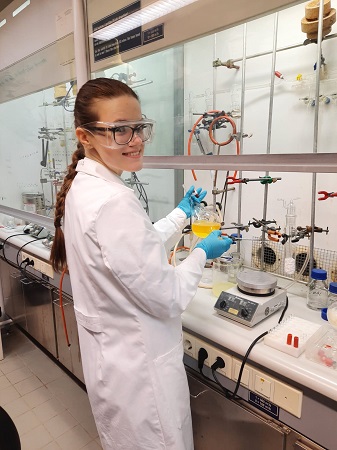From forest industry waste streams to new urethanes and polyurethanes: value from Lignin degradation
Ended year 2022
Researcher
Veronika Badazhkova, Doctoral Student, Åbo Akademi University
Supervisors
Professor Reko Leino (Principal investigator), Dr. Risto Savela and Dr. Patrik Eklund
Site of Research
Johan Gadolin Process Chemistry Centre, Laboratory of Molecular Science and Technology, Åbo Akademi University
Description of the project:
Polyurethanes belong to the most important polymeric materials and, due to their highly versatile properties, are used in several different applications, including tubings, footwear, industrial machinery, coatings and paints, elastic fibers, rigid insulations, soft flexible foams and medical devices. Traditionally, polyurethanes are produced from isocyanate monomers, which are often highly toxic and moisture sensitive. Alternatively, properly sized cyclic carbamates could be polymerized by cationic ring opening polymerization. A possible biomass based feedstock for polyurethanes could be lignin. It is one of the most abundant organic polymers available on earth, constituting ~30% of non-fossil based carbon and approximately 20-35% of dry mass of wood. Comprised of aromatic monomers, lignin can be considered as one of the most abundant natural resources for future aromatic platform chemicals. Suitable cyclic carbamates could be prepared catalytically from lignin by alcohol amination reaction followed by carbon dioxide fixation, thus allowing the minimization of chemical waste formed in process. The objective of this project is to discover suitable methodologies for the utilization of waste streams from Finnish forest industry to facilitate the production of biomass based polyurethanes.

Veronika Badazhkova, Doctoral Student, Åbo Akademi University
